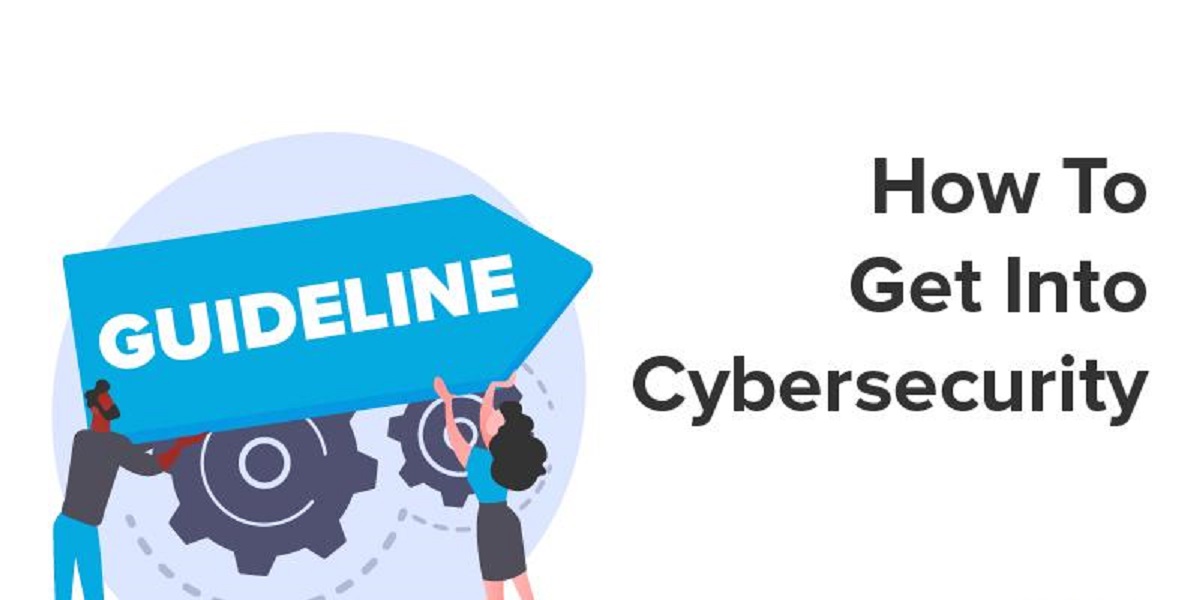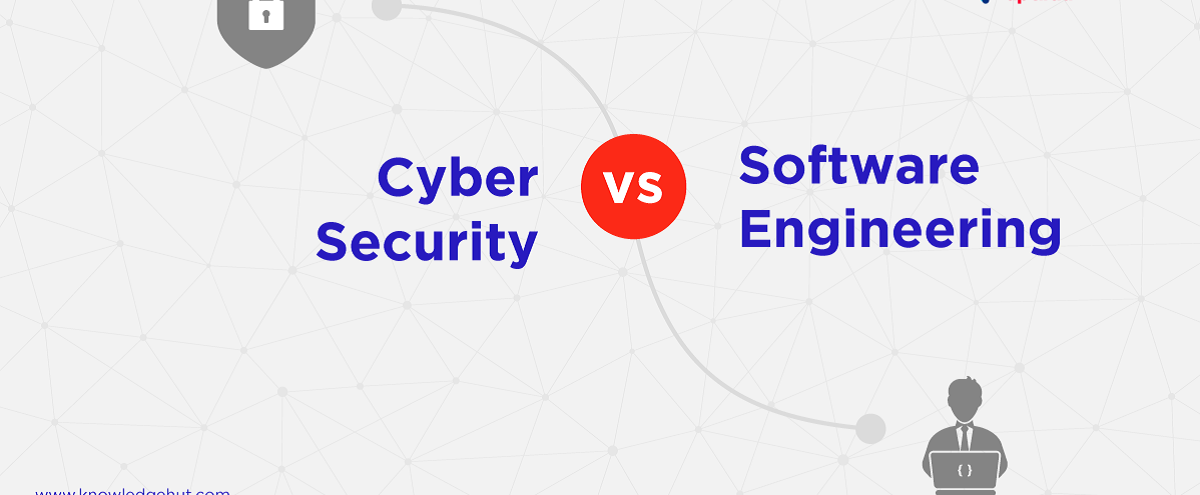Introduction
Welcome to the fast-paced and ever-evolving world of cybersecurity! As technology continues to advance, the need for skilled professionals in the field of cybersecurity has become more critical than ever before. With cyber threats and attacks constantly on the rise, organizations and individuals are seeking qualified cybersecurity specialists to protect their sensitive data and systems.
In this article, we will explore the fascinating field of cybersecurity and guide you on how to become a cybersecurity specialist. Whether you’re a recent graduate looking to start a rewarding career or a seasoned IT professional considering a transition, this article will provide you with valuable insights and a roadmap to success in the cybersecurity industry.
Before we delve deeper into the specifics, it’s essential to understand what cybersecurity entails. Simply put, cybersecurity is the practice of protecting computer systems, networks, and data from unauthorized access, theft, or damage. This includes developing robust security measures, implementing effective strategies, and responding promptly to any security incidents.
Nowadays, cybersecurity goes beyond conventional firewalls and antivirus software. It encompasses a wide range of technologies and practices, such as encryption, network security, incident response, vulnerability assessment, and ethical hacking. As a cybersecurity specialist, you’ll play a crucial role in safeguarding digital assets and defending against cyber threats in both the corporate and government sectors.
So, what does it take to become a successful cybersecurity specialist? The field requires a unique blend of technical, analytical, and problem-solving skills. Additionally, continuous learning, adaptability, and staying updated with the latest security trends and technologies are essential to thrive in this dynamic industry.
With an increasing demand for cybersecurity professionals, this is an opportune time to embark on a career in this field. In the following sections, we will discuss the essential skills and qualifications you’ll need, the education and training options available, valuable certifications to consider, and practical strategies for building a strong foundation in cybersecurity.
Without further ado, let’s dive into the exciting world of cybersecurity and discover the path to becoming a cybersecurity specialist!
Understanding Cybersecurity
In today’s digital age, where data breaches and cyber attacks have become commonplace, understanding the fundamentals of cybersecurity is crucial. Simply put, cybersecurity refers to the practice of protecting computer systems, networks, and data from unauthorized access, disruption, and damage. It encompasses a wide range of measures and strategies designed to safeguard both individuals and organizations from digital threats.
Cybersecurity is not limited to a single aspect but encompasses various components to ensure comprehensive protection. These components include network security, information security, application security, and infrastructure security. Let’s take a closer look at each:
- Network Security: Network security focuses on protecting the integrity and confidentiality of networks. It involves implementing firewalls, intrusion detection systems, and virtual private networks (VPNs) to prevent unauthorized access and secure data transmission.
- Information Security: Information security involves safeguarding sensitive data, including personal, financial, and proprietary information. This includes encryption techniques, access control mechanisms, and data backup strategies to ensure data confidentiality, integrity, and availability.
- Application Security: Application security entails protecting software applications from vulnerabilities and unauthorized access. This involves code reviews, penetration testing, and secure coding practices to eliminate potential entry points for attackers.
- Infrastructure Security: Infrastructure security focuses on securing the physical and virtual components of an organization’s IT infrastructure, including servers, databases, and cloud platforms. It involves implementing security controls, monitoring systems, and implementing disaster recovery plans.
Understanding these different facets of cybersecurity is essential as it enables professionals to identify potential vulnerabilities and design robust security measures. By implementing comprehensive cybersecurity strategies, individuals and organizations can mitigate the risk of cyber threats and safeguard their valuable assets.
It’s important to note that cybersecurity is not a one-time effort but an ongoing process. Cybercriminals are constantly evolving and devising new ways to exploit vulnerabilities. Therefore, staying up-to-date with the latest security trends, technologies, and best practices is crucial in maintaining effective cybersecurity defenses.
Now that we have a fundamental understanding of cybersecurity, let’s explore the skills and qualifications necessary to embark on a successful career in this exciting field.
Essential Skills and Qualifications
As cybersecurity continues to grow in importance, employers are seeking professionals with a specific set of skills and qualifications to effectively protect their systems and data. Here are some of the essential skills and qualifications you’ll need to become a successful cybersecurity specialist:
- Technical Knowledge: A strong foundation in IT and computer systems is crucial. You should have a deep understanding of networking protocols, operating systems, databases, and programming languages. Knowing how different technologies work and interact allows you to identify vulnerabilities and design effective security solutions.
- Problem-solving Abilities: Cybersecurity specialists face complex and ever-changing threats, so being able to analyze and solve problems quickly is essential. You should have a logical and systematic approach to identifying and mitigating security risks.
- Attention to Detail: In cybersecurity, attention to detail is critical. You must be thorough in your analysis to identify weak points and potential vulnerabilities in systems and networks. Small oversights can lead to significant security breaches.
- Communication Skills: The ability to clearly communicate complex technical concepts to both technical and non-technical audiences is crucial. Cybersecurity professionals often work in teams and need to convey information effectively to colleagues, management, and clients.
- Continuous Learning: The cybersecurity landscape is dynamic, with new threats and technologies emerging regularly. A commitment to lifelong learning is essential to stay updated with the latest trends, tools, and techniques in the field. Engage in ongoing professional development through training, certifications, and industry events.
- Ethical Mindset: Ethical behavior and a strong moral compass are critical traits for a cybersecurity specialist. Handling sensitive information requires integrity and a commitment to client confidentiality.
- Analytical Thinking: Being able to analyze and interpret vast amounts of data is crucial in detecting patterns, identifying anomalies, and assessing potential threats. Developing strong analytical skills will help you make informed decisions and take appropriate action.
In addition to these skills, there are several qualifications that can boost your credentials in the cybersecurity field. These include earning a degree in cybersecurity, computer science, or a related field. Many universities and colleges offer specialized programs in cybersecurity that provide a strong foundation in both theory and practical skills.
Furthermore, cybersecurity certifications validate your expertise and can give you a competitive edge in the job market. Certifications such as Certified Information Systems Security Professional (CISSP), Certified Ethical Hacker (CEH), and Certified Information Security Manager (CISM) are recognized and respected within the industry.
By possessing the right combination of skills, qualifications, and certifications, you’ll be well-equipped to excel as a cybersecurity specialist. In the next section, we’ll explore the various education and training options available to help you kickstart your career in this exciting field.
Education and Training
To prepare for a career in cybersecurity, obtaining the right education and training is crucial. While a formal degree in cybersecurity can provide a solid foundation, there are other options available to gain the necessary knowledge and skills in this field.
Academic Degrees: Many universities and colleges offer specialized degree programs in cybersecurity and related fields, such as computer science or information technology. These programs provide a comprehensive understanding of cybersecurity principles, technical skills, and practical experience. A bachelor’s or master’s degree in cybersecurity can significantly enhance your chances of securing entry-level or advanced positions in the industry.
Certificate Programs: Certificate programs in cybersecurity are shorter, more condensed options for those looking to gain targeted knowledge and skills. These programs often focus on specific areas within cybersecurity, such as ethical hacking, network security, or digital forensics. Certificate programs are a valuable option for individuals who already have a degree or professionals looking to enhance their expertise in a specific area.
Online Courses and MOOCs: The rise of online learning platforms and Massive Open Online Courses (MOOCs) has made it easier than ever to access cybersecurity training remotely. These platforms offer courses taught by industry experts that cover a wide range of cybersecurity topics. Online courses provide flexibility and allow you to learn at your own pace, making them a great option for individuals with busy schedules or those looking to learn specific skills on their own.
Professional Associations and Organizations: Joining professional associations and organizations in the cybersecurity field can provide valuable networking opportunities and access to training resources. Associations like the International Information System Security Certification Consortium (ISC)² and the Information Systems Security Association (ISSA) offer certifications, conferences, webinars, and other learning opportunities to their members.
Internships and Practical Experience: Gaining practical experience through internships, co-op programs, or entry-level positions is invaluable in cybersecurity. This hands-on experience allows you to apply the knowledge and skills learned in educational settings to real-world scenarios. Internships also provide an opportunity to network with professionals in the field, potentially leading to job offers or mentorship opportunities.
It’s important to note that while formal education and training are essential, cybersecurity is a rapidly evolving field that requires continuous learning. Staying up-to-date with the latest industry trends, attending conferences, participating in webinars, and reading cybersecurity publications are critical for ongoing professional development.
By combining formal education, professional certifications, and practical experience, you’ll be well-positioned to embark on a successful career in cybersecurity. In the next section, we’ll explore some of the top certifications to consider in the field.
Certifications to Consider
In the cybersecurity industry, certifications can significantly enhance your credentials and demonstrate your expertise in specific areas. Employers often look for certified professionals who have validated their knowledge and skills through reputable certification programs. Here are some of the top certifications to consider in the field of cybersecurity:
- Certified Information Systems Security Professional (CISSP): Offered by (ISC)², the CISSP certification is one of the most recognized and respected certifications in the industry. It covers a wide range of cybersecurity topics, including security and risk management, asset security, and software development security. The CISSP certification requires passing an exam and having at least five years of relevant work experience.
- Certified Ethical Hacker (CEH): The CEH certification, offered by the International Council of E-Commerce Consultants (EC-Council), focuses on ethical hacking and penetration testing. It equips professionals with the knowledge and skills to identify vulnerabilities and analyze security systems from an attacker’s perspective.
- CompTIA Security+: The CompTIA Security+ certification is widely recognized and covers foundational cybersecurity concepts, network security, and risk management. It is a vendor-neutral certification that provides a broad understanding of cybersecurity principles and is well-suited for individuals starting their career in the field.
- Certified Information Security Manager (CISM): The CISM certification, offered by ISACA, is designed for cybersecurity professionals involved in managing, designing, and overseeing an enterprise’s information security program. It covers topics such as information security governance, risk management, and incident management.
- GIAC Security Certifications: The Global Information Assurance Certification (GIAC) offers a variety of specialized certifications in areas such as incident response, penetration testing, and security administration. These certifications are highly regarded in the industry and focus on hands-on practical skills.
These are just a few examples of the many certifications available in the cybersecurity field. The right certification for you will depend on your career goals, interests, and the specific area of cybersecurity you wish to specialize in.
When choosing a certification, it’s important to consider factors like industry recognition, relevance to your desired career path, and the level of difficulty. Additionally, maintaining your certification often requires earning continuing education credits, which ensures that certified professionals stay updated with the latest developments in the field.
While certifications can boost your credibility and job prospects, they should not be seen as a substitute for practical experience and a strong foundational understanding of cybersecurity principles. Combining certifications with practical experience and ongoing professional development will provide a well-rounded skill set and enhance your value as a cybersecurity professional.
In the next section, we’ll discuss how to build a strong technical foundation in cybersecurity.
Building a Strong Technical Foundation
Building a strong technical foundation is essential for any aspiring cybersecurity specialist. This foundation serves as the bedrock of your knowledge and skills, enabling you to tackle complex security challenges and stay ahead in this ever-evolving field. Here are some key steps to help you build a strong technical foundation in cybersecurity:
- Understand Networking Principles: Networking is at the core of every IT infrastructure, and a solid understanding of networking principles is vital for cybersecurity professionals. Familiarize yourself with TCP/IP protocols, routers, switches, and network security concepts to comprehend how data flows in a network environment.
- Learn Programming Languages: Proficiency in programming languages is valuable for understanding vulnerabilities in software and developing secure code. Python, Java, C++, and PowerShell are widely used in cybersecurity, so gaining proficiency in these languages will enhance your technical capabilities.
- Master Operating Systems: Operating systems like Windows, Linux, and macOS are prevalent in today’s computing landscape. In-depth knowledge of their architecture, file systems, security mechanisms, and administration will help you identify vulnerabilities and implement effective security measures.
- Gain Hands-on Experience with Security Tools: Familiarize yourself with security tools such as network scanners, vulnerability assessment tools, intrusion detection systems, and firewalls. Experimenting with these tools in a controlled environment will deepen your understanding of their functionalities and enable you to identify potential security issues.
- Practice Ethical Hacking: Ethical hacking, also known as penetration testing, involves simulating real-world cyber attacks to identify vulnerabilities in systems and networks. Learning ethical hacking techniques and performing hands-on penetration testing exercises will provide you with invaluable insights into the mindset and methods of potential attackers.
- Stay Updated with Security Trends: Cybersecurity is a rapidly evolving field, with new threats emerging regularly. Keep up with the latest security trends, read security blogs, and follow industry thought leaders to stay informed about emerging vulnerabilities, attack vectors, and defense strategies.
In addition to these technical considerations, it’s crucial to develop a mindset of continuous learning and curiosity. Subscribing to cybersecurity publications, attending conferences and webinars, and participating in cybersecurity competitions can further enhance your technical skills and keep you connected to the cybersecurity community.
Remember, building a strong technical foundation is an ongoing process. Embrace new challenges, seek opportunities to apply your knowledge, and continuously seek to expand your skill set. By doing so, you’ll be well-equipped to tackle the increasingly complex security landscape and succeed as a cybersecurity specialist.
In the next section, we’ll explore the importance of gaining practical experience in cybersecurity.
Gaining Practical Experience
In the field of cybersecurity, practical experience is highly valued by employers and plays a crucial role in developing your skills and knowledge. While education and certifications provide a solid foundation, gaining hands-on experience allows you to apply theoretical concepts to real-world scenarios and further refine your abilities. Here are some key strategies to gain practical experience in cybersecurity:
- Internships and Co-op Programs: Seek out internships or cooperative education (co-op) programs with organizations that have dedicated cybersecurity teams. These opportunities allow you to work alongside experienced professionals, gain exposure to real-world cybersecurity challenges, and apply your knowledge in a practical setting.
- Capture the Flag (CTF) Competitions: Participate in CTF competitions, which are cybersecurity challenges designed to test your skills in areas like digital forensics, vulnerability analysis, and network exploitation. CTF competitions provide hands-on experience and allow you to work in teams, solving complex cybersecurity problems under time pressure.
- Open-Source Contributions: Contribute to open-source projects related to cybersecurity. This not only showcases your skills but also allows you to collaborate with experienced developers and gain practical experience in securing software and systems. Open-source projects are readily available on platforms like GitHub, and active community participation can enhance your professional profile.
- Personal Projects: Undertake personal projects that align with your cybersecurity interests. This could involve setting up a home lab to practice network security configurations, developing a secure coding project, or conducting vulnerability assessments on virtual machines. These projects demonstrate your initiative and dedication to gaining practical experience.
- Mentorship and Shadowing: Seek out experienced cybersecurity professionals who are willing to mentor or allow you to shadow them. Observing their processes, analyzing their decision-making, and applying their expertise can provide invaluable insights into real-world cybersecurity practices.
- Participate in Bug Bounty Programs: Bug bounty programs are offered by organizations to incentivize cybersecurity researchers to discover and report vulnerabilities in their systems. By participating in these programs, you can gain hands-on experience in identifying and responsibly disclosing security flaws while potentially earning monetary rewards.
Remember, practical experience not only enhances your technical skills but also demonstrates your passion and commitment to potential employers. Document your experiences, projects, and achievements to showcase during job interviews or in your professional portfolio.
Additionally, never miss an opportunity to learn from your colleagues and build relationships within the cybersecurity community. Engaging in discussions, attending industry events, and participating in online forums can expose you to diverse perspectives, emerging technologies, and best practices.
Practical experience in cybersecurity is invaluable, providing you with the confidence and knowledge to handle real-world security challenges. In the next section, we’ll discuss the importance of developing soft skills alongside technical expertise.
Developing Soft Skills
While technical expertise is vital in the field of cybersecurity, developing soft skills is equally important for success as a cybersecurity specialist. Soft skills are the non-technical abilities that enable you to effectively communicate, collaborate, and adapt in various professional settings. Here are some key soft skills to develop alongside your technical skills:
- Communication: Strong communication skills are crucial for cybersecurity professionals. You should be able to articulate technical concepts clearly to both technical and non-technical stakeholders. Effective communication helps in conveying complex security issues, collaborating with team members, and presenting findings or recommendations to management.
- Critical Thinking: Cybersecurity requires the ability to analyze complex situations, identify potential risks, and make informed decisions. Developing critical thinking skills enables you to approach security challenges with a logical and analytical mindset, effectively weighing options and considering potential outcomes.
- Problem-Solving: Problem-solving skills are essential for cybersecurity professionals, who often encounter unique and challenging security issues. Being able to approach problems from different angles, evaluate potential solutions, and implement effective countermeasures is crucial to mitigating risks and securing systems.
- Decision-Making: The ability to make sound decisions under pressure is key in cybersecurity, where quick response times are often critical. Developing your decision-making skills will help you assess risk levels, prioritize tasks, and take appropriate action in various scenarios, including incidents and emergencies.
- Teamwork and Collaboration: Cybersecurity professionals often work in diverse teams, and the ability to collaborate effectively is crucial. Building strong relationships, fostering open communication, and valuing diverse perspectives contribute to successful teamwork, which is essential in addressing complex security challenges.
- Adaptability: The cybersecurity landscape is constantly evolving, with new threats and technologies emerging regularly. Being adaptable and receptive to change is crucial in staying ahead of attackers and embracing new practices and technologies to enhance security defenses.
- Ethics and Integrity: Cybersecurity professionals handle sensitive information and have a responsibility to ensure the confidentiality and integrity of data. Developing a strong ethical mindset and maintaining high levels of integrity are essential for building trust with stakeholders and maintaining professional standards.
While technical skills can often be learned through education and experience, soft skills may require intentional effort and practice. Look for opportunities to strengthen these skills, such as participating in team projects, leadership roles, or public speaking engagements. Additionally, seeking feedback from mentors and colleagues can provide valuable insights to improve your soft skills.
Remember, developing strong soft skills alongside technical expertise can set you apart in the cybersecurity industry. Employers seek well-rounded cybersecurity professionals who can effectively communicate, collaborate, and navigate the complexities of the field.
In the next section, we’ll discuss the importance of networking and professional development in your cybersecurity career.
Networking and Professional Development
In the field of cybersecurity, networking and professional development play a vital role in shaping your career and staying abreast of industry trends and advancements. Building a strong professional network and actively pursuing continuous learning opportunities are essential for long-term success in this dynamic field. Here are key strategies to enhance your networking and professional development in cybersecurity:
- Join Professional Associations: Participate in cybersecurity-focused professional associations and organizations such as the International Information System Security Certification Consortium (ISC)², Information Systems Security Association (ISSA), or the Open Web Application Security Project (OWASP). These associations provide networking opportunities, access to industry events, and resources to further your professional growth.
- Attend Conferences and Events: Attend cybersecurity conferences and industry events to connect with experts, peers, and potential employers. These events offer valuable insights into emerging threats, new technologies, and best practices in the field. Engaging in conversations and networking with industry professionals allows you to expand your knowledge and create meaningful connections.
- Participate in Online Communities: Engage in online forums, social media groups, and discussion boards dedicated to cybersecurity. These communities provide platforms to learn from and share knowledge with professionals from all over the world. Actively participating in discussions and contributing valuable insights can help you establish a strong professional presence online.
- Pursue Continuous Learning: Cybersecurity is a field that continuously evolves, and staying up-to-date with the latest advancements is crucial. Seek out online courses, webinars, and workshops to expand your knowledge in specific areas of cybersecurity. Pursuing certifications and attending training programs can also demonstrate your commitment to continuous learning and professional growth.
- Engage in Information Sharing: Cybersecurity thrives on the principle of sharing information and knowledge. Contribute to the cybersecurity community by writing blogs, presenting research findings, or publishing papers. Sharing your insights and experiences not only enhances your professional credibility but also fosters collaboration and knowledge exchange.
- Build Meaningful Relationships: Cultivating relationships with mentors, colleagues, and industry professionals can provide guidance, support, and opportunities for growth. Attend networking events, reach out for informational interviews, and actively seek mentorship to create and nurture meaningful connections. These relationships can open doors to new career opportunities and offer valuable advice throughout your cybersecurity journey.
- Stay Informed: Keep yourself updated with industry publications, blogs, and newsletters. Regularly read cybersecurity news, follow influencers on social media, and subscribe to reputable industry sources to stay abreast of emerging threats, new technologies, and best practices in the field.
Networking and professional development ensure that you stay connected with the cybersecurity community, expand your knowledge, and seize new opportunities. Actively engaging in these activities shows your dedication to professional growth and keeps you informed about the latest trends and practices in the field.
Remember, networking is not solely about what you can gain, but also about what you can contribute to the community. Share your expertise, collaborate with others, and support fellow professionals to foster a vibrant and supportive cybersecurity network.
In the final section, we’ll explore various job opportunities and career paths available in the cybersecurity field.
Job Opportunities and Career Path
The field of cybersecurity presents a plethora of job opportunities and diverse career paths for professionals looking to make an impact in protecting digital assets and systems. From entry-level positions to advanced roles, here are some of the job opportunities and career paths in cybersecurity:
- Cybersecurity Analyst: As a cybersecurity analyst, you’ll be responsible for monitoring networks and systems, identifying potential threats, and implementing security measures to protect against attacks. This entry-level role provides valuable experience in threat detection, incident response, and vulnerability management.
- Penetration Tester/Ethical Hacker: Penetration testers, also known as ethical hackers, simulate cyber attacks to identify vulnerabilities in systems and networks. They assess the security posture of organizations and provide recommendations for improvement. This role requires a deep understanding of security concepts, strong technical skills, and knowledge of various hacking techniques.
- Security Engineer: Security engineers design and implement security systems to protect networks, applications, and data. They work closely with development teams, ensuring that security measures are integrated throughout the development lifecycle. Security engineering requires expertise in network security, cryptography, and secure coding practices.
- Incident Response Analyst: Incident response analysts play a critical role in responding to and managing security incidents. They investigate and analyze security breaches, develop incident response plans, and coordinate efforts to contain and mitigate the impact of breaches. This role requires strong technical skills, an understanding of forensic techniques, and excellent problem-solving abilities.
- Security Architect: Security architects develop and implement security frameworks, policies, and solutions that align with an organization’s business objectives. They design secure systems and networks, conduct risk assessments, and provide guidance on security best practices. Successful security architects possess a deep understanding of security principles and technologies.
- Chief Information Security Officer (CISO): CISOs are senior-level executives responsible for overseeing an organization’s information security strategies and policies. They manage security teams, collaborate with stakeholders, and ensure compliance with legal regulations. CISOs need a broad understanding of cybersecurity, strong leadership skills, and the ability to assess and manage risk.
As you gain experience and expertise, you can progress along various career paths within cybersecurity. This may involve taking on managerial roles, specializing in specific areas such as cloud security, mobile security, or data privacy, or transitioning into consulting or academia.
Continuing education and professional certifications play a significant role in career advancement. Certifications such as Certified Information Systems Security Professional (CISSP), Certified Information Security Manager (CISM), or Certified Ethical Hacker (CEH) can open doors to higher-level positions and increased responsibilities.
Moreover, given the critical role of cybersecurity in today’s digital landscape, there is a strong demand for skilled professionals. Job opportunities can be found in a wide range of industries, including finance, healthcare, government, and technology. Organizations of all sizes require cybersecurity expertise to protect sensitive data, making cybersecurity a lucrative and rapidly growing field.
By continuously expanding your knowledge, honing your skills, and staying updated with industry trends, you can carve out a successful and fulfilling career in the exciting realm of cybersecurity.
Conclusion
Cybersecurity is a field of immense importance in today’s technology-driven world. With the rise in cyber threats and attacks, the demand for skilled cybersecurity specialists continues to grow. In this article, we have explored the various aspects of becoming a cybersecurity specialist, from understanding the fundamentals of cybersecurity to building a strong technical foundation, gaining practical experience, and developing essential soft skills.
To embark on a successful career in cybersecurity, it is important to acquire the necessary technical knowledge through education, certifications, and practical experience. A solid understanding of networking principles, programming languages, and operating systems is essential, along with gaining hands-on experience using security tools and practicing ethical hacking techniques.
However, technical skills alone are not sufficient. Developing soft skills like effective communication, critical thinking, and problem-solving is crucial. These skills enable you to work effectively in teams, make informed decisions, and adapt to the ever-changing cybersecurity landscape.
Networking and professional development are essential for long-term success in cybersecurity. Joining professional associations, attending conferences and events, and engaging in online communities help you expand your network, stay updated with industry trends, and contribute to the cybersecurity community. Continuous learning and pursuing certifications are key to staying current with evolving technologies and best practices.
The field of cybersecurity offers a wide range of job opportunities and diverse career paths. Whether you begin as a cybersecurity analyst, ethical hacker, or security engineer, with experience and expertise, you can progress into managerial roles, specialize in specific areas, or even become a Chief Information Security Officer (CISO) overseeing an organization’s security strategies.
As you embark on your journey to become a cybersecurity specialist, remember that this field requires a commitment to continuous learning, adaptability, and staying up-to-date with the latest security trends. Embrace the challenges, seek practical experience, build meaningful relationships, and stay curious. By doing so, you will position yourself for a rewarding career in safeguarding digital ecosystems and protecting against cyber threats.

























